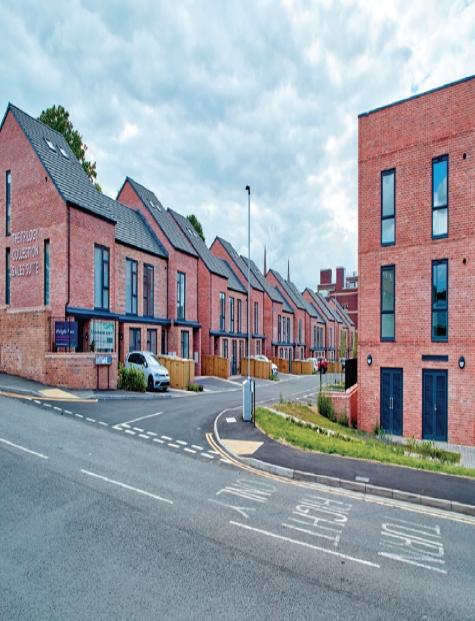Context
Since the previous Homelessness Prevention and Rough Sleeper Strategy was developed in 2019, we have seen many changes, mostly due to the Covid 19 pandemic. In March 2020, the Government instructed all Councils to adopt the “Everyone In” approach to safeguard homeless people and those at risk of rough sleeping. The Council rose to the challenge by ensuring a swift and effective response to finding accommodation for rough sleepers or those most at risk of homelessness.
Working flexibly during the pandemic allowed homelessness services to continue to operate throughout lockdown, strengthening existing relationships and enabling new partnerships with community support groups to flourish. This strategy will continue to build on the lessons learned during lockdown.
Cost of Living Crisis
As we continue recovery following the pandemic, the increased cost of living brings a wave of new challenges. The number of people in Rotherham facing fuel poverty will likely increase as household bills rise, and more people will find themselves turning to the Council for housing support. The housing market is also shifting. Increased house prices and rents are further limiting the housing options of people with low incomes, with much of the private sector out of reach for local people and interest rates and other household bills rising, causing concern for home owners too.
The Local Housing Allowance (LHA) has not kept pace with the market, resulting in an increasingly unaffordable private rented market for households on low incomes who are dependent either wholly or in part for assistance with their housing costs. There is a direct link between the LHA gap limiting access to housing and the increase in the number of homelessness applications resulting from a loss of accommodation within that sector.

Housing Supply
Addressing the housing market issues is a priority for the Housing Strategy. An historic lack of supply of affordable housing is now resulting in an imbalance, and people with lower incomes face limited choices. Mortgages are out of reach for many, private rents are increasingly unaffordable and social housing is in short supply. The Council will work alongside housing providers to increase the supply of affordable housing, to enable people to have a place to call home and offer long term stability. Where homelessness cannot be avoided it is important that we increase intervention activity to enable people back into settled housing accommodation quickly and sufficiently so that they do not fall back into homelessness

The Changing Profile of Homelessness
The strategy acknowledges the necessity to respond to the increasing number of people who are homeless or at risk of homelessness who have complex needs. Complex needs may include entrenched street homelessness, repeat service use or being otherwise vulnerably housed, mental, psychological, or emotional health needs, drug and/or alcohol dependency. Some individuals will have had contact with the criminal justice system, have physical health needs and have experience of domestic violence and abuse.
Rotherham has a proud history of welcoming those fleeing war and persecution, most recently through our residents stepping up to offer sanctuary to Ukrainians through the Homes for Ukraine scheme, but nonUK nationals seeking housing in Rotherham can lead to further pressures on stretched homelessness services. Our experience is that these households want to find stable housing as soon as possible and are strongly motivated to work if they are not already doing so, but some have specific needs including language barriers and experience of trauma, which can increase risk of homelessness.
Rough Sleeping
The number of people sleeping rough are at low levels compared to some boroughs and cities. In November 2022, the official Government rough sleeper count for Rotherham was zero, down from 16 in 2018/19. Much of this has been achieved through the work over the last three years of the Council’s Rough Sleeper Initiative Team and excellent partnership working. The Council remains focused on ending rough sleeping and will concentrate on the prevention of rough sleeping and the coordination of the range of support provisions to help people with their recovery and transition into settled housing.
